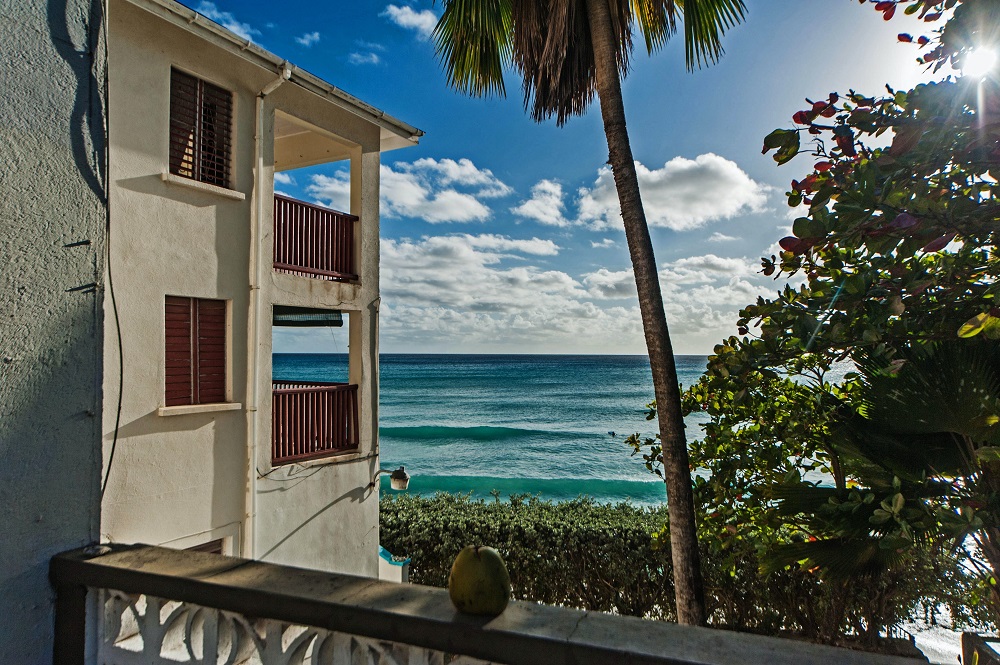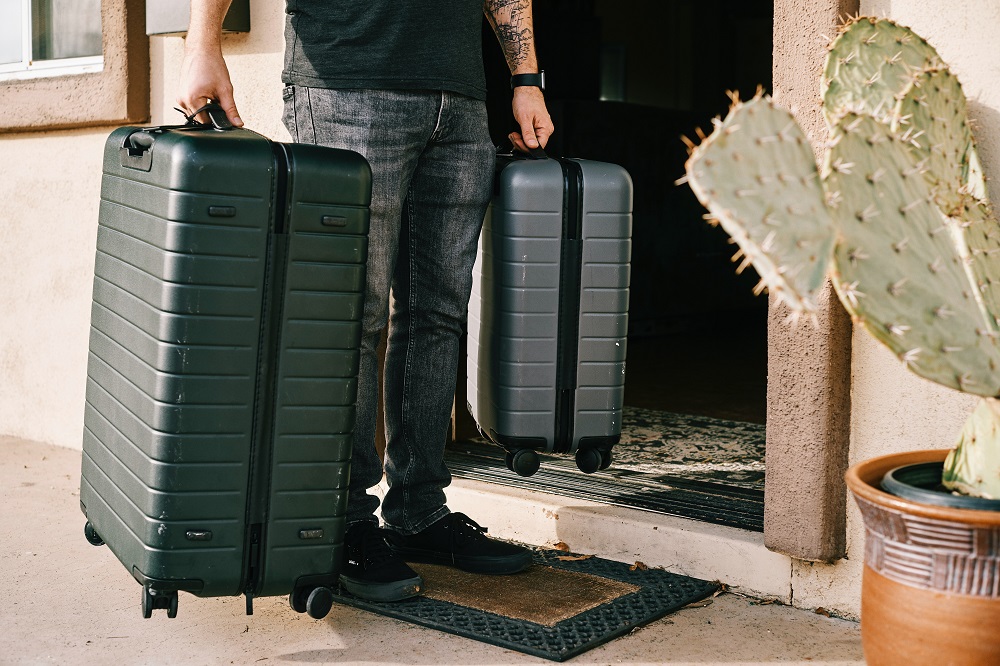Airbnb and VRBO are the two most well-known online platforms for booking vacation rentals. Both platforms have pros and cons, but which is the best choice for your business? This blog post will look at the parallels and discrepancies between VRBO and Airbnb, and provide tips on which platform is best for you.
Thank you for reading this post, don't forget to subscribe!Table of Contents
ToggleWhat is VRBO?
Since its founding in 1995, VRBO—formerly called HomeAway—has belonged to the Expedia Group. More than teo million rentals are available, comprising beach homes, cabins, condominiums, mansions, lakefront rentals, and ski chalets.
With the tagline “Travel Better Together,” VRBO primarily serves households, tourists, and bigger groups. So, the only rentals they show on their vacation rental platform are filled spaces. This means there may be better choices than VRBO if you want to lease out rooms or communal areas. VRBO is an excellent option if you have family-friendly vacation rentals.
What is Airbnb?
Since its founding in 2007, Airbnb has amassed over four million hosts and six million home listings throughout more than 220 nations and territories.
Everything is available on Airbnb, from inexpensive, basic lodgings to more expensive, luxurious abodes. Whatever you’re searching for, Airbnb can accommodate you, whether a single unit, an apartment, a house, a cabin, or a farm. Additionally, Airbnb offers listings for cabins, castles, igloos, yachts, villas, log cabins, private islands, and other lavish or adventurous accommodations.
Typically, Airbnb draws younger travelers seeking out more economical lodging options. However, it is also the ideal rental option for people searching for shorter stays or business travelers who want specialized facilities while traveling.
A Quick Comparison Between Airbnb vs VRBO
| Attribute | VRBO | Airbnb |
| Property listing type | Entire properties | Large variety of options, including single units and shared spaces. |
| Service fees | Total price will depend on rental cost, minus taxes | – Split fee: Homeowners pay 3% and visitors pay 14.2% of the total cost of the reservation. – The hosts may impose extra charges, such as housekeeping or pet fees. |
| Customer service | Travel protection insurance allowed | No travel protection insurance |
| Cancellation policy | – For bookings, visitors need to log in to cancel or modify bookings. – Policy options include no refund, 14/7-day, 30/14-day, 60/30-day, 60-day, and custom policy – It changes usually according to property | – To cancel or modify bookings, guests must log in. – Each property has different rules. |
Vacation Rental Properties: Airbnb vs. Vrbo
The property type that can be posted on either site, Airbnb and VRBO, are clearly different in significant ways. Here is an in-depth comparison on a few other elements that differentiate the platforms.
Vacation Rentals on Airbnb
Single rooms, chalets, small homes, deluxe rentals, and seaside cottages are just a few of the many properties that homeowners and property managers can list on Airbnb.
This often implies that vacation renters searching for more distinctive and particular home types may readily locate them on Airbnb. Additionally, hosts can offer shared spaces on Airbnb. This means that visitors don’t have to purchase a whole house. Instead, they can reserve individual rooms inside a residence.
Vacation Rentals on VRBO
In contrast, VRBO provides more conventional lodging. VRBO, which focuses mainly on family vacations, only takes reservations for stand-alone vacation houses and forbids any form of shared room promotion.
As a result, bigger families wishing to rent a full home while on vacation tend to find VRBO homes more alluring.
VRBO homes are better suited for extended stays, although both VRBO and Airbnb offer vacation rental rooms.
Though the vacation rental site is an attractive choice for individuals traveling for shorter periods, it is beginning to add new vacation rental services in response to a surge in extended stays. Additionally, specific Airbnb accommodations could give discounts for longer stays.
Costs Between Airbnb and VRBO
Service charges are incurred by both hosts and visitors, regardless of where you opt to list your short-term rental property. The total amount a visitor will spend on a booking and your total rental income might be impacted by service fees. Below, we’ll go into some details to help you understand what is involved.
Service Fees on Airbnb
Service fees on Airbnb include:
- The host-only fee model
- The split fee model
The host-only charge allows hosts to avoid charging guest service fees to Airbnb users who make reservations through them by paying the full-service price directly to Airbnb. This is typically 14–16% of the overall cost of the reservation.
The split fee halves the service fee between the visitor and the homeowner. The visitors will likely cover most of the costs under this arrangement, with an average extra fee of 14% of the reservation sum.
Hosts wind up paying about 3% of the overall booking price in this situation. However, this number may be higher for hosts who want to impose tight cancellation regulations.
There is no additional cost for processing credit cards for Airbnb hosts.
Hotels are typically required to charge a host-only fee. The host-only price comes with the advantage of preventing visitors from being caught off guard by the extra service charges charged at checkout. Hosts can raise the costs of their property to make up for paying the host-only commission. As a result, visitors are eager to spend the whole amount without feeling duped because they already know about it.
Service Fees on VRBO
A guest service fee, which is deducted from the overall price of the reservation, ranges from 6% to 12% for guests.
Depending on their anticipated yearly revenue, VRBO hosts can pick from two service charge options:
- They may select a $499 yearly membership plan that includes all the reservations they receive through the site during the year.
- A reservation charge for each booking is the alternate choice. In this situation, hosts are billed a 5% fee on the total rental cost, any additional costs, such as a cleaning fee, and a 3% service charge for credit card processing.
The Cancellation Policy on VRBO and Airbnb
Both Airbnb and VRBO provide cancellation rules that protect homeowners from unexpected cancellations’ negative impacts and guarantee visitors a refund if they give homeowners enough notice.
Visitors should thoroughly read descriptions when booking a reservation to determine the host’s cancellation policy. Ensure that you read the chosen policy’s terms and conditions in detail in case there is anything you may not be comfortable with.
Cancellation Policy on Airbnb
There are four cancellation policies on Airbnb that hosts can provide to their visitors:
- The new fixed cancellation policy falls between Moderate and Strict. It was also made available by Airbnb as of June 2021. A suitable replacement for harsher regulations was requested by hosts and guests at the time of the launch. With Airbnb’s new cancellation policy, visitors may now enjoy a 100% money-back policy for cancellations made within 30 days prior to check-in. For reservations made within 14 and 30 days prior to check-in, visitors may cancel their reservations for a full refund up to 48 hours after making the reservation and for a 50% refund until 7 days prior to check-in.
- Airbnb provides free cancellation a maximum of five days prior to check-in. The visitors receive a 50% refund following that, excluding the service fee and their first night, if they cancel before checking in. They will receive a 50% refund for unused nights if they depart early within 24 hours of their reservation.
- During the 24-hour period prior to check-in, Airbnb permits free cancellation. Afterward, suppose the visitor cancels before check-in. In that case, they will receive a full refund, excluding the service fee and their first night. A full refund will be given to the visitor within 24 hours of cancellation if they wish to check out early.
- If a visitor makes a cancellation 14 days prior to check-in, Airbnb will reimburse the cost of the reservation for 48 hours. Following that, cancellations up to seven days prior to check-in will result in a return of the housekeeping cost and a 50% reduction in the room rate, minus the service fee. The visitors are not entitled to a reimbursement if they check out early or cancel under seven days before arrival.
Cancellation Policy on VRBO
On VRBO, different properties may have other cancellation policies. Guests must be attentive to properly examine the policies because hosts can create unique regulations. Nevertheless, hosts often use one of these from VRBO:
- No Refunds
- 14/7 day policy: If customers cancel 14 days prior to check-in, they receive a full refund. If they cancel 7 days before, they receive a 50% refund (without service charge). However, there will be no reimbursement if they cancel in less than seven days.
- 30/14 day policy: If visitors cancel 30 days prior to check-in, they will receive a full refund. If they cancel 14 days before, they will receive a 50% refund (without service charge). However, there will be no reimbursement if they cancel with less than 14 days to go.
- 60/30 day policy: If a visitor makes a cancellation 60 days prior to check-in, they are entitled to a complete refund. If they cancel 30 days prior to check-in, they are entitled to a 50% refund (without service charge). They won’t get a refund if they cancel less than 30 days before arrival.
- 60-day policy: If a visitor cancels within 60 days prior to check-in, they will receive a complete refund. Otherwise, there will be no reimbursement.
Which is Cheaper: Airbnb or VRBO?
The customer care costs for Airbnb are often more costly than those for VRBO. On Airbnb, customer service charges range from 14.2% to 16%. Meanwhile, VRBO charges a reservation fee of 3% for handling payments and 5% for commission on the overall rental price. Taxes are not a part of these costs.
A few factors might raise the price of VRBO rentals relative to Airbnb rentals. Here are some of them:
- Fewer property listings
- The renting of large homes as opposed to just individual rooms or shared areas.
- When a home is reserved, a damage deposit could be required.
- Extra Trip Board benefit for taking notes and interacting with tour group members.
VRBO and Airbnb Safety
For lone guests, Airbnb has a particular safety function. It enables them to tell relatives and friends about their reservation schedule. Additionally, the tool gives questions for hosts and safety advice.
VRBO solely provides private rentals. Therefore, visitor safety is improved since no guest will be staying with strangers. However, VRBO helps visitors who feel insecure in their rental apartment by assisting them in rebooking. After that, they investigate the allegation to see if the host has broken any rules. The presence of any surveillance equipment on the premises must also be disclosed by all hosts.
Which Vacation Rental Platform Should You Choose?
Travelers who meet the requirements can also use VRBO’s payment plan through Affirm, which allows you to pay at your own pace. Depending on their credit history, users of the Affirm payment plan pay from 10% to 30% APR. This plan is not provided by Airbnb.
Airbnb is seen by some as a superior choice if you enjoy urban living and trying new things. From private rentals to shared spaces, Airbnb has many low, mid, and high-priced short-term rental homes and lodgings.
It could be a preferable choice for larger families and friendship groups since VRBO vacationers frequently travel in large numbers. Only private rooms can be reserved by visitors. However, VRBO has fewer listings, which means less diversity and options for visitors.
VRBO vs. Airbnb For Homeowners
Listing your property on both Airbnb and VRBO is a relatively simple process. To get started, simply make a profile, provide the information about your rental, and publish your photos. For further protection, hosts on Airbnb and VRBO are both subject to vetting.
Property managers using VRBO have two alternatives:
- Pay the firm a 3% credit card processing charge plus a 5% commission fee for every reservation, or
- Pay a yearly fee of roughly $500 and get an unlimited number of reservations.
Since it only deducts roughly 3% of overall revenues as a host service charge, Airbnb is friendlier to its hosts. Therefore starting an Airbnb business may be the ideal option if you’re considering tapping into the short-term rental market.
Conclusion
Airbnb and VRBO are two popular vacation rental platforms that offer a variety of benefits for both hosts and guests. However, there are also some crucial pros and cons for both services that you should consider before deciding which one is right for your needs.
Depending on the number of reservations you anticipate, The subscription structure of VRBO might save you a lot of money if you’re always occupied. However, Airbnb is better for a wider variety of accommodations.
Ultimately, your final decision will depend on the property you are renting out and the guests you hope to attract.
Create Long-Term Wealth With The Short Term Shop
Whether you own the vacation rental property or are an investor, running it can be difficult. You must be fully knowledgeable about accounting, customer service, marketing, and other fields. The time, work, and guidance needed to run a vacation rental property can be rare to come by, as we are well aware. Fortunately, support from experts is always close.
The real kicker is that finding, analyzing, and managing the best short-term rentals across the most lucrative regions is now simpler than it has ever been, thanks to The Short Term Shop. Explore several listings today to find vacation rentals for sale that fit your needs and investment strategy.
VRBO vs. Airbnb FAQs
Airbnb is publicly traded and has diverse ownership, including co-founders and venture capital firms. VRBO is a subsidiary of Expedia Group. Expedia Group is a publicly traded company that possesses various well-known travel brands, and Vrbo is among them.
There is greater demand for existing property listings on Airbnb, due to the platform’s larger user base (150 million vs. VRBO’s 48 million). A more significant number of listings means a greater selection of locations. But, it may also come with increased competition.
Both platforms provide multiple ways for hosts and visitors to pay less.
Guests may save money by searching for accommodation on Airbnb, where hosts cover the total service charge.
By paying a yearly fee of $499, homeowners on VRBO may get away from the 5% service charge. This is advised for hosts who earn over $10,000 a year from their rental units.
Although both VRBO and Airbnb take precautions to guarantee the protection of their visitors, Airbnb poses more potential dangers for guests simply because it allows visitors to remain in shared spaces.
User reviews vary, and satisfaction depends on personal preferences. Some users may prefer the variety offered by Airbnb, while others appreciate the focus on vacation homes provided by Vrbo. It’s recommended to read reviews specific to the chosen location and accommodation type.





